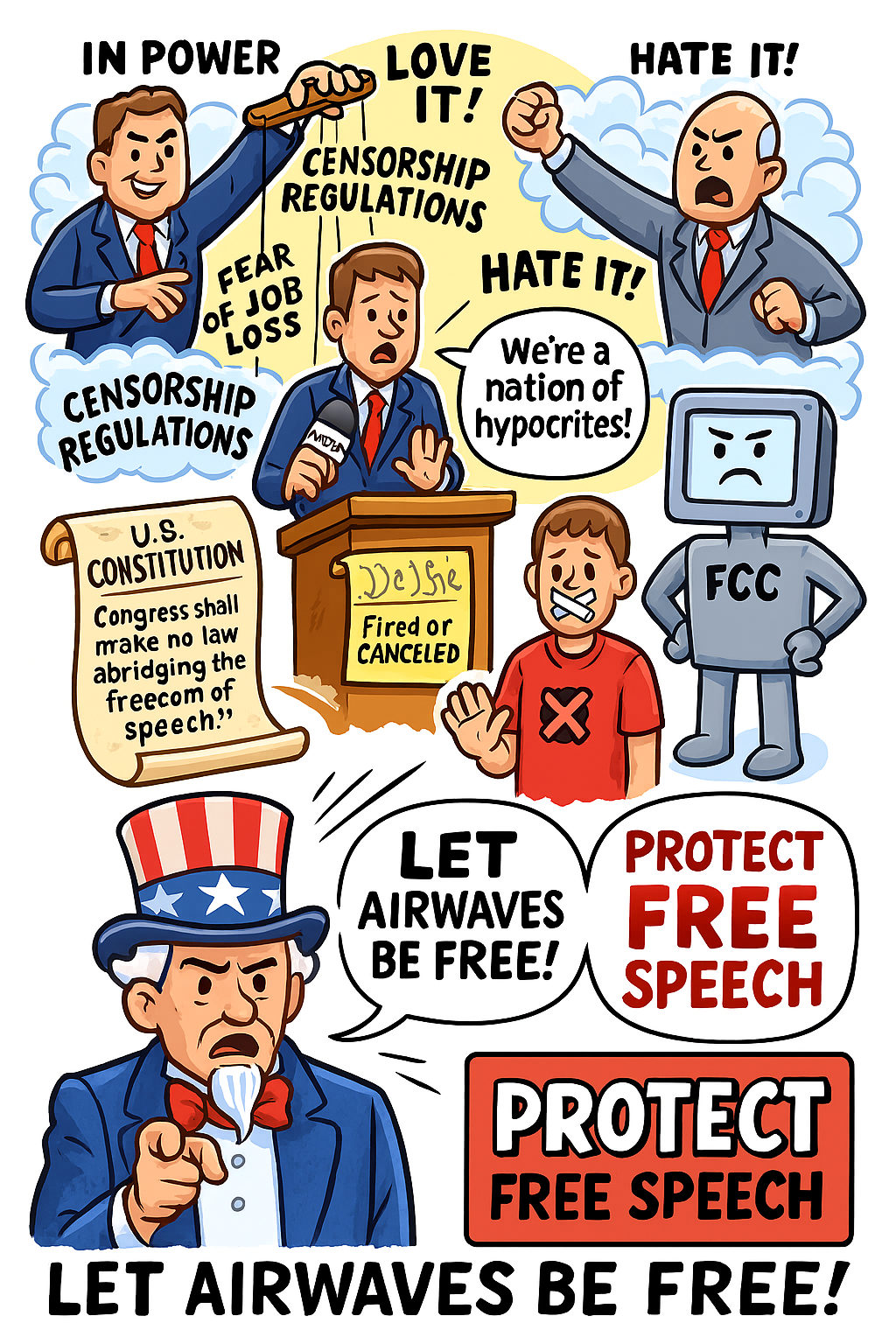People and governments love regulation when they’re in power and hate it when they’re not. During Biden’s administration, conservative voices on broadcast TV, cable, and streaming platforms faced intense pressure, with many fearing job loss for expressing their views. How many people were “canceled” for questioning the government’s COVID-19 policies? Most of these cases didn’t meet the legal definition of censorship in the United States, which occurs when the government stifles an individual’s or group’s ability to speak freely in public. Getting fired or suspended by an employer for public statements is generally not considered censorship and isn’t protected by law. Recent events, like the assassination of Charlie Kirk and the firing of people nationwide for insensitive comments about it, most notably Jimmy Kimmel’s suspension, highlight a widespread misunderstanding of what free speech is and how it’s protected.
The United States has wrestled with free speech since its founding. From the Sedition Acts and Civil War suspensions of habeas corpus to the Espionage Acts and McCarthy hearings, attempts to curtail speech have been beaten back to protect this fundamental right. Thank the Founders for the First Amendment:
Congress shall make no law respecting an establishment of religion, or prohibiting the free exercise thereof; or abridging the freedom of speech, or of the press; or the right of the people peaceably to assemble, and to petition the Government for a redress of grievances. —U.S. Constitution
U.S. Constitution
In modern times, however, the federal government has found ways to limit speech, particularly through the Federal Communications Commission (FCC). Established in 1934 to regulate radio frequencies and prevent interference, the FCC’s mandate includes the vague phrase, “promote public convenience, interest, or necessity.” This language, still present in the Code of Federal Regulations, acts as a foothold for regulating broadcast content. While not a law, it carries the force of law, which is the core issue with federal regulations.
If the FCC stuck to managing frequencies, there’d be little debate about censorship in broadcasting. Instead, its involvement in regulating content over public airwaves has led to censorship from the start. Rather than letting local communities decide what’s appropriate, the FCC dictates what serves the “public interest” from on high.
Consider children’s programming. FCC regulations, intended to protect kids, drove this content off broadcast TV onto cable and streaming platforms. Rules targeting advertising and programming for children dried up revenue, resulting in dull Educational and Informational (E/I) shows that nobody watches. These programs were relegated to low-viewership timeslots because no broadcaster wants to waste airtime on unprofitable content.
This brings me to the Jimmy Kimmel controversy. FCC Chair Brendan Carr’s comments allegedly pressured broadcasters to silence Kimmel. Sinclair Broadcasting and Nexstar Media Group, controlling about 30% of ABC affiliate stations, suspended Kimmel’s show, prompting ABC to halt it nationwide. If this suspension stemmed solely from FCC pressure, it’s wrong and should never happen. However, I suspect ABC seized the controversy as an opportunity to drop a low-rated show while blaming the Trump administration.
Regardless of the motives, the FCC should stay out of regulating broadcast content on TV and radio. I’m all for this. The FCC has no business policing what airs, no matter how objectionable some might find it. If people want to watch or listen, let them. The public knows how to change the channel.
But the country doesn’t seem to want this. Most people want their own speech protected while stifling their opponents’. We’re a nation of hypocrites, eager to control what others say and hear. I’m free to choose what I watch, and I don’t need anyone dictating my options. Yet, for some reason, many prefer to take away that choice rather than exercise their own.
To protect free speech, the FCC must be removed from content regulation entirely. Let the airwaves be free, and let viewers and listeners decide for themselves.
